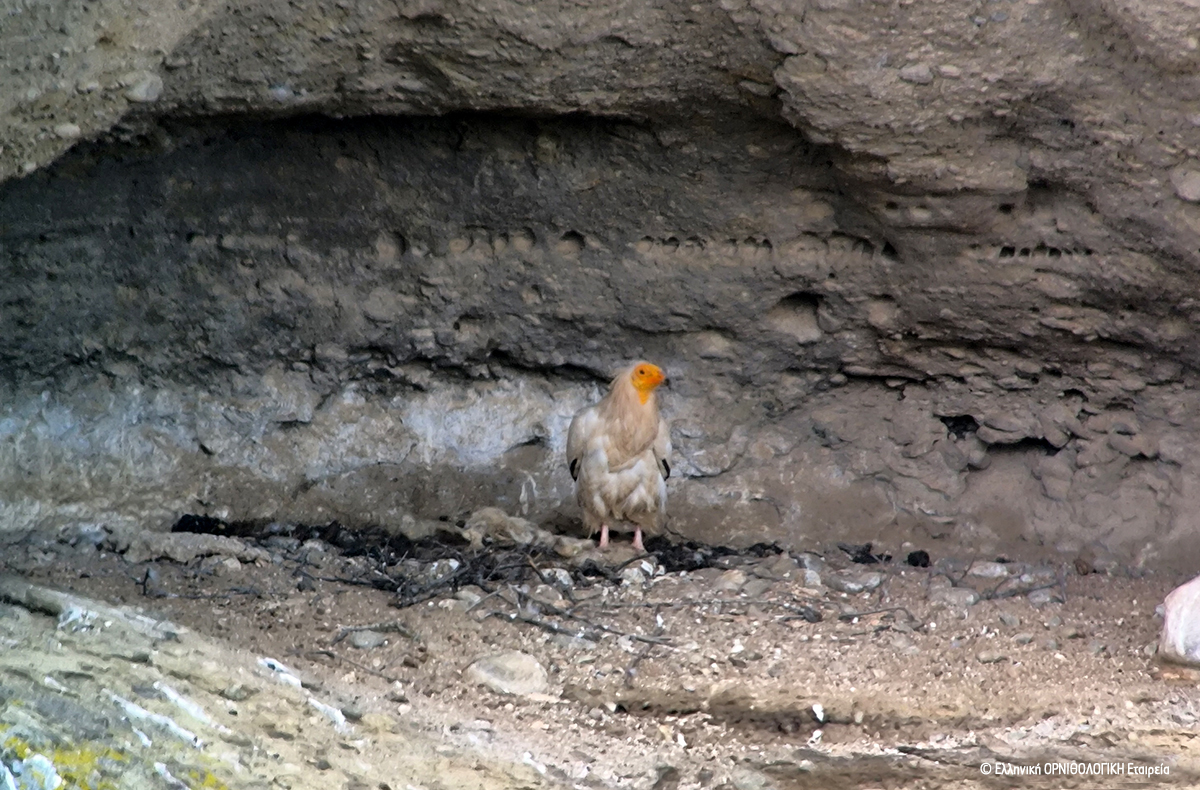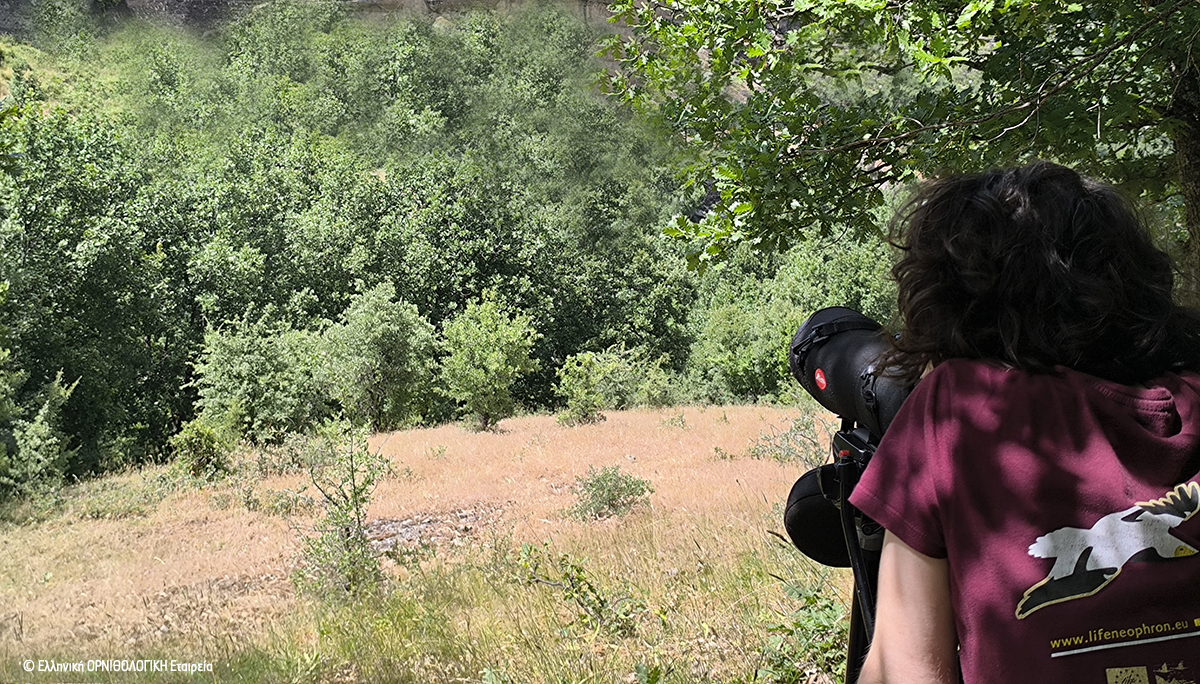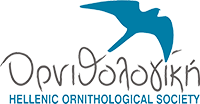Last April brought to us the most incredibly good news: a pair of Egyptian Vultures were spotted nesting in Meteora, Central Greece – the first one since 2018. Just a few months later, we can sigh with relief: after six long years, a new fledgling hatched in the area!
The presence of a newly-formed pair of Egyptian Vultures in Meteora was first confirmed by members of a local network supported by the Hellenic Ornithological Society – HOS (BirdLife Greece) in the beginning of April. A few days later, HOS’ field researchers established the location of the nest and immediately started monitoring the pair’s breeding behavior, in collaboration with Greece’s Natural Environment and Climate Change Agency (NECCA) and the Forestry Service of Kalampaka.

Egyptian Vultures incubate their eggs for about one and a half months with both parents taking turns to watch over the eggs. Despite the systematic monitoring of the nest, it wasn’t until the beginning of June that an HOS’ field researcher managed to discern the head of a chick sticking out of the sheep’s wool that Egyptian Vultures use to build their nest.
The next weeks will be crucial for the survival of both the chick and the adult birds. To successfully raise their young chick, the parents will now need to travel a lot more back and forth to provide the large amount of food needed. This means that the pair will be much more exposed to the risk of coming across poisoned animals or baits. This would be of disastrous consequences since it could lead to the poisoning of both the parents and the chick. This is exactly what happened, back in 2015, when a pair from a neighboring nest fed their young with a poison bait.
It is important to underline that the illegal use of poison baits is the main reason that the Egyptian Vulture’s population in Greece collapsed in the past decades. Nowadays, Egyptian Vultures are among the most threatened animal species in the country, having been classified as Critically Endangered in the latest version of Greece’s Red Book of Endangered Species that was recently published by NECCA.
Thus, to reduce the probabilities of a poisoning incident, HOS started in May to operate once again the supplementary feeding station located in the area of Vlahava, in collaboration with the Forest Agency of Kalambaka and with the financial support of NECCA. HOS had been operating this same feeding station for over ten years in the framework of two LIFE projects for the species (LIFE “The Return of the Neophron” & Egyptian Vulture New LIFE).
Furthermore, NECCA’s specially trained Anti-poison Dog Units, together with personnel from the Forestry Service of Kalambaka are patrolling the countryside on a regular basis.
A single poison bait can bring to an end the “small miracle” happening in Meteora this spring, despite all of the efforts invested by HOS, NECCA and the Forestry Service of Kalambaka.
For this reason, the two Egyptian Vultures and their young will continue to be closely monitored and hopefully, the whole family will depart for Africa in the beginning of autumn. The species’ future lies in the hands of each one of us.




